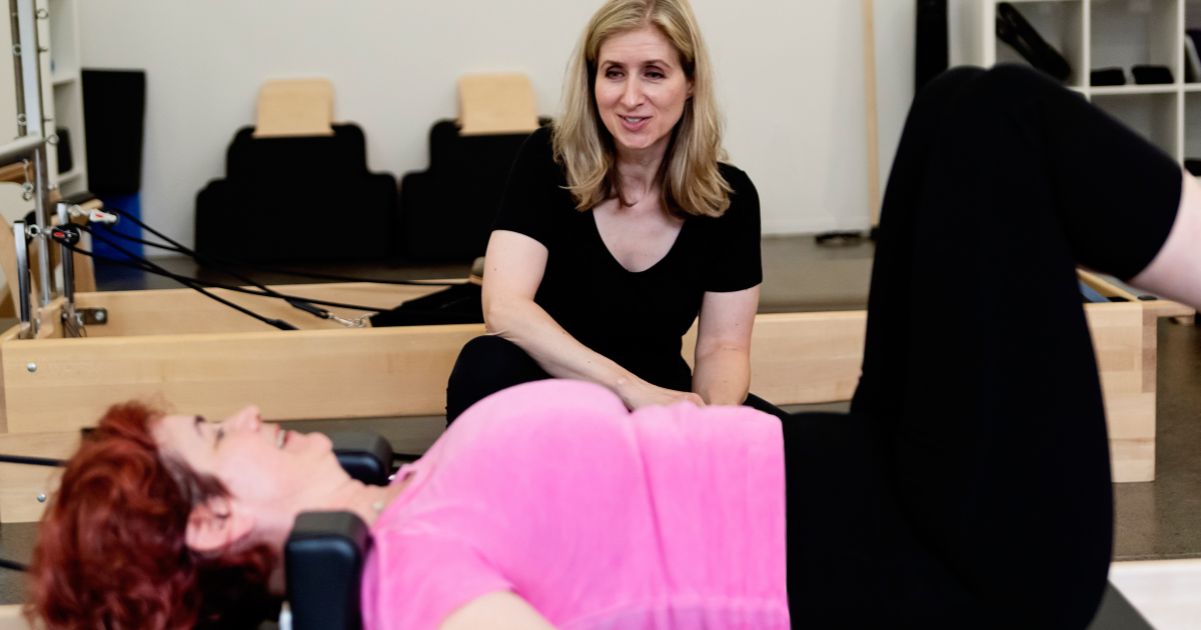This is a complex and often debated topic, and I approached it with care, knowing it can spark strong opinions. However, I’ve received so many questions about teacher training recently that I feel it’s important to provide some clarity and share my perspective on the key differences between Pilates certifications and studio-based instructor trainings.
First, I want to acknowledge that talented colleagues and friends have launched their own instructor trainings. My goal is not to criticize but to inform those outside the industry about the differences among Pilates professionals.
Studio-based instructor trainings can be highly profitable, which makes them an appealing option for studios, especially in markets like ours where there’s a noticeable shortage of instructors. This shortage has left studios in a challenging position, often leading them to train their own teachers out of necessity. However, it’s crucial to understand that there are distinct differences in the structure, depth, and outcomes of certifications versus studio-led trainings.
Content and Curriculum
- Instructor Trainings: Any studio owner, regardless of experience level or background, can create and offer an instructor training program. While some training programs are thoughtfully crafted by individuals with movement expertise, others lack depth and may be created by individuals with minimal experience and no background in movement or allied health. These programs are often shorter and oversimplified, and lack any standardized coursework. There may be limited to no coverage of essential topics like anatomy, and may not require an exam or may have a minimal assessment process.
- Certifications are designed by teams of industry experts with a comprehensive, standardized curriculum that typically includes anatomy, Pilates movement principles, movement science, functional training, and covers exercise purposes, contraindications, and modifications for special populations. Studios offering certifications deliver material developed by a credentialing body, ensuring that regardless of which studio provides the certification, the skill level meets a consistent, recognized standard. Certifications involve extensive training (400-600 hours depending on the program), including coursework, hands-on apprenticeships, personal practice, and exams. Trainees must pass comprehensive exams to ensure high standards of knowledge and teaching ability are met before being granted certification. Lastly, studio owners or instructors aspiring to become Master Instructors must have several years of full-time teaching experience and complete additional coursework before being eligible to teach certification programs.
Recognition and Credibility
- Instructor Trainings offer local recognition only, and may not be accepted outside the immediate area, or even at other local studios.
- Certifications are internationally recognized, allowing instructors to teach at a broader range of studios, and be accepted into professional associations
Ongoing Education
- Instructor Trainings may lack structured support or ongoing learning after completion.
- Certifications offer mentorship, networking, and opportunities for continuing education through organized bodies, ensuring ongoing professional development.
In Summary
Certifications provide a comprehensive, standardized education that is globally recognized, whereas instructor training programs can vary significantly in content, and have limited recognition.
In Montreal’s Pilates market, the shortage of instructors has prompted the creation of numerous local teacher training programs. While some instructor training programs are excellent, others fall short, and the absence of external oversight and review makes it difficult to gauge their quality.
If you’re considering becoming a Pilates instructor and aspire to teach professionally, it’s important to carefully evaluate a program before committing to ensure it meets your career goals. If you’re a client of a Pilates studio, it’s essential to understand that instructor training can vary widely—a particularly important consideration if you have specific needs or require specialized guidance. If you’re curious about your instructor’s training, take a look at their bio. Comprehensive training programs require hundreds of hours of education, and instructors who have completed them list their credentials.
In the future, we hope to become a local host of a recognized certification program—stay tuned!
